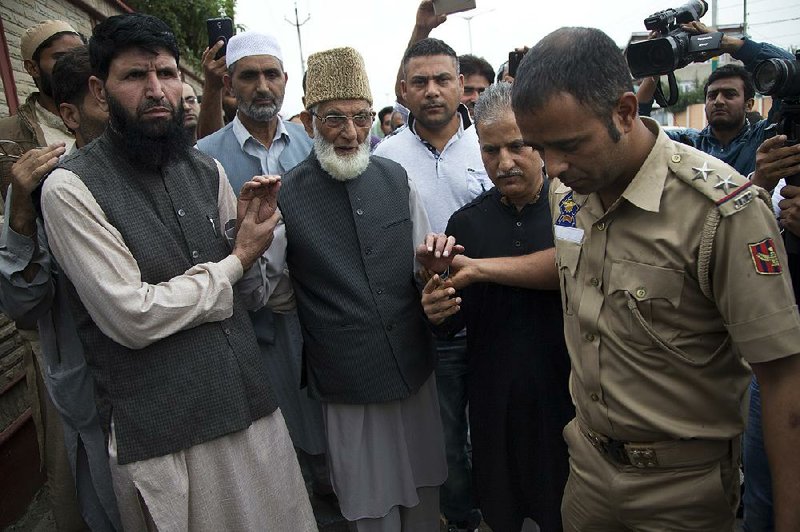SRINAGAR, India -- Police in the Indian-controlled portion of Kashmir said Saturday that they have arrested one of the key separatist leaders spearheading protests against Indian rule in the disputed region.
Police arrested Mirwaiz Umar Farooq, who was already under house arrest, late Friday and locked him up in a government facility in Srinagar, the region's main city, a police officer said, speaking on condition of anonymity in keeping with department policy.
Farooq is among the leaders who have been jointly issuing schedules of protests to challenge India's sovereignty over Kashmir.
A strict curfew and a tightening crackdown by authorities have failed to stop some of Kashmir's largest protests against Indian rule in recent years, triggered by the killing of a popular rebel commander July 8. Since then, tens of thousands of people have defied the curfew, staged protests and clashed with government forces.
At least 67 civilians have been killed and thousands injured, mostly by government forces firing bullets and shotguns at rock-throwing protesters. Two policemen have also been killed and hundreds of government forces have been injured in the clashes.
Chief Minister Mehbooba Mufti, the region's top elected official, met with Indian Prime Minister Narendra Modi in New Delhi on Saturday, seeking a comprehensive dialogue with Kashmiri separatist leaders and neighboring Pakistan to try to resolve the dispute over Kashmir.
The weeks of unrest in the region have intensified already strained relations between archrivals India and Pakistan, who both control parts of the Himalayan territory and claim it in its entirety.
Kashmiri separatist leaders, most of them either under house arrest or in police detention, have vowed to continue their struggle and refused to participate in any dialogue before New Delhi accepts Kashmir as a disputed region, releases political prisoners, revokes harsh emergency laws and announces a plan for demilitarization.
Mufti defended the 50-day-old curfew in the region, where residents have struggled to cope with shortages of food, medicine and other necessities.
"The main objective of the curfew is to save the lives of young people. What else can we do?" she told reporters after the meeting.
Most Kashmiris want an end to Indian rule and favor independence or a merger with Pakistan. More than 68,000 people have been killed since rebel groups began fighting Indian forces in 1989 and in the subsequent Indian military crackdown.
A Section on 08/28/2016
